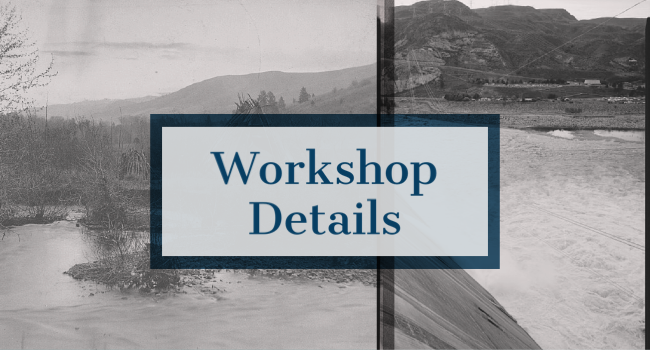
The workshop will confront the Grand Coulee Dam as a landmark of alternative perspectives that suggest the complexity, and ultimately, the richness of the American experience.
Basic Workshop Information
Sessions will be led by scholars, teaching facilitators, and cultural experts. Content will be organized around three central questions:
- How did Grand Coulee represent the material and moral aspirations of the United States during the mid-20th Century?
- How did indigenous peoples experience the re-plumbing of the Columbia River valley?
- How would we write our own narrative of Grand Coulee?
By critically evaluating competing narratives centered on place, teachers will develop lesson plans designed to promote student engagement by grappling with fundamental and enduring questions of historical inquiry and memory appropriate for K-12 students, including questions such as:
- How do we guarantee the rights of the minority?
- How do we maintain pluralistic values and practices?
- How do we define the collective good? And ultimately, do the ends justify the means in the pursuit of that "collective good?"
Participants will work with primary historical material including art, song, speeches, material artifacts, and oral histories. In addition, we shall select important works from the secondary literature to help frame critical interpretive questions.
Emphasizing experiential outcomes, we will visit Kettle Falls, the Kettle Falls Historical Center, the Colville Tribal Museum, and the Grand Coulee Visitor's Center.
Project Leadership
- Project leaders and faculty come from the University of Arizona, Eastern Washington University, Washington State University.
- Project Co-Directors are David Pietz, the UNESCO Chair of Environmental History at the University of Arizona (UA), and Dorothy Zeisler-Vralsted, Emeritus Professor of Political Science and an expert on water governance at Eastern Washington University (EWU).
- The Lead Faculty is Benedict Colombi, a professor of anthropology from the University of Arizona who is an expert on the plateau tribes of the Pacific Northwest.
- Our Workshop Facilitator is Francene Watson, an assistant professor of education and an expert in high school pedagogy and Native American education.
- Other faculty and facilitators include experts in Native American history, the history of the U.S. West, environmental history, the history of technology, historical memory, and contemporary indigenous studies.
Stipend Information
Teachers selected to participate as Summer Scholars will receive a $1,300 stipend at the end of the workshop session. Stipends are intended to help cover travel expenses to and from the project location, books, and ordinary living expenses. Stipends are taxable.
Professional Development
The Office of Continuing and Professional Education at the University of Arizona will offer participants Certificates of Completion, either digital or hard copy, or digital badging, an electronic credential that can be added to LinkedIn profiles and online resumes. The badge, available through the badging platform Badr, will be “branded” by the UA College of Social and Behavioral Sciences and contains metadata that includes particulars of the program and/or learning objectives achieved.
APPLICATIONS OPEN
December 15, 2023
APPLICATION DEADLINE
March 5, 2024
NOTIFICATION DATE
April 5, 2024